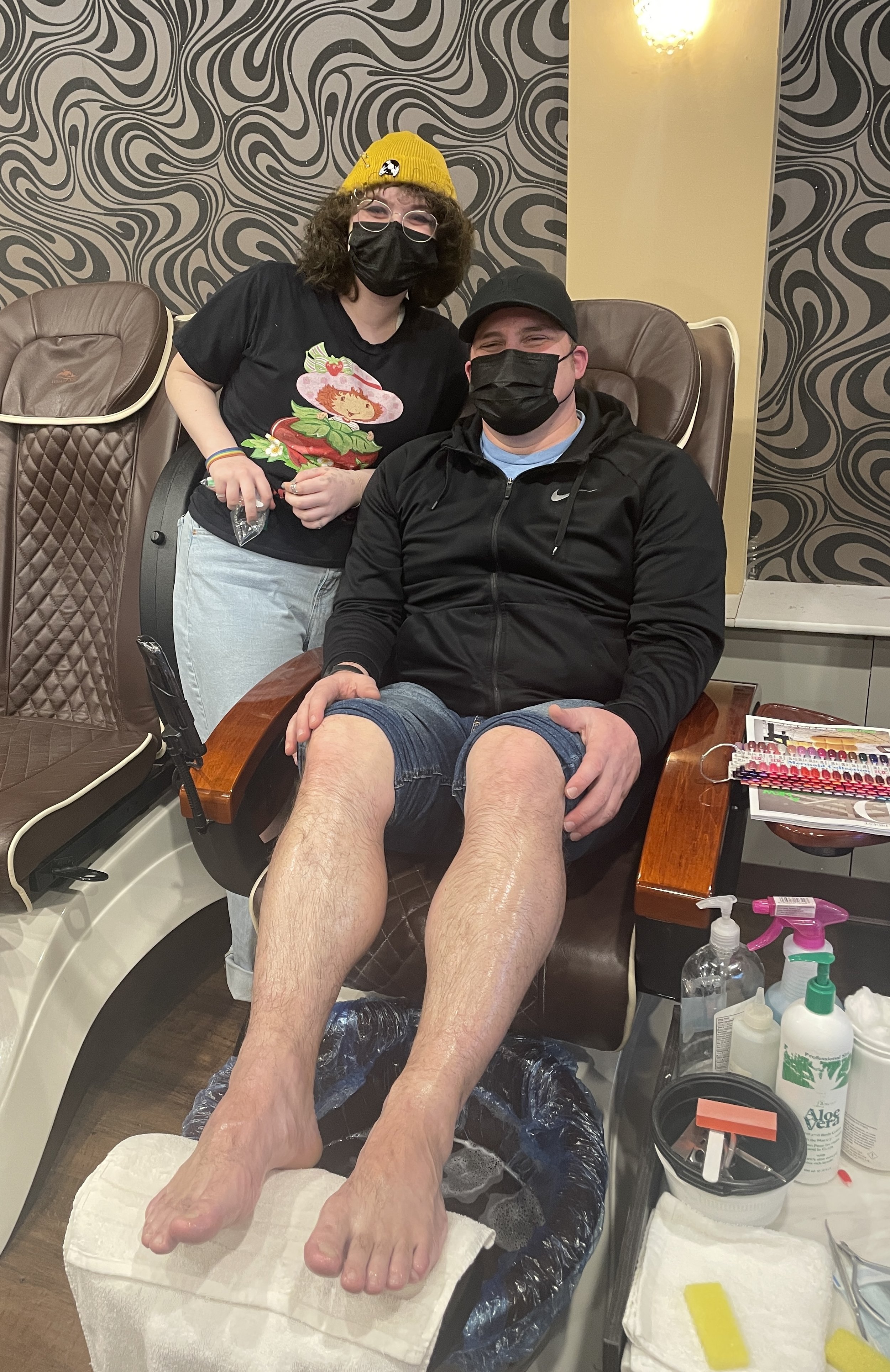5 Keys to Decoding Your Daughter
Michelle Watson
Have you ever secretly wished that your daughter came with a decoder ring? Or if not a ring, perhaps a playbook?
Truth be told: Don’t you think it would be far easier to be a dialed-in dad if your daughter consistently made more sense to you? And wouldn’t it be wonderful if there were some manual that told you what to say and what not to say, as well as what to do and what not to do to get it right as a #girldad?!
Just so you feel less alone, I want you to know how often I hear dads say to me, “I have no idea what to do to help my daughter.” I’m truly honored whenever a man is vulnerable and willing to ask for input.
Dad, here’s what I want you to hear from my heart to yours, something I don’t think you hear enough:
Not only are you important, but you are vital to your daughter’s health and well-being—even if her words and behavior at times speak to the contrary. I also want you to know that you matter...a lot…and without your active engagement, your daughter will suffer.
And though you may feel in over your head at times, I want you to know that you’re in good company. I’ve noticed that men are often keenly aware of their deficits and find it easier to disqualify themselves than face the potential confirmation of incompetence. Add in the additional complexity of fathering a daughter whose needs intensify as she matures, and many fathers are stepping back rather than stepping in.
Though I don’t claim to have a corner on all things female, when it comes to coaching dads of daughters, I do know some insider trade secrets regarding what girls need from their dads in order to thrive. Though this list barely scratches the surface, it will get the conversation started.
As a dad of a daughter, here are a few things you need to know in order to decode your daughter, especially if she doesn’t know how to tell you these things herself:
1. She longs for your approval.
If your daughter has ever given you the message that you are unnecessary, don’t believe her. She’s craving your support and affirmation. And if she doesn’t get what she needs from you, she’ll go looking for it elsewhere. When she looks at you, you’re like a mirror who reflects back an image of herself that she internalizes. This is why it’s vital that you never give her the message that she’s more than you can handle. Keep giving positive, consistent, and intentional investments—with your words, time, and attention.
2. Even if she pushes you away, don’t go away.
It often saddens me to hear dads assume they don’t have value in the lives of their daughters because the bases are already covered elsewhere. I do understand that as girls mature, they are less predictable, more verbal, and way more emotional, which makes it very challenging for dads. But it’s important to know that this is when hormones begin to rage in her body and brain (over which she has no control since it’s about estrogen surging through her body), and they impact her moods, behavior, and thinking. This is normal and these are realities over which she has no control. This is when she needs you even more during these years, dad. If you back away, your daughter could conclude that she’s not worth loving. Your active presence (a.k.a. moving towards her and initiating time together) lets her know she is worthy and valuable.
3. She needs you to always respond with kindness.
Just know that it goes a long way to keeping her heart open when you speak kindly, gently, tenderly, and patiently. If you’re at a loss for words, simply say: “I want to understand. Help me understand.” These words align with Malachi 4:6 where God directs fathers to turn their hearts---not just their heads---towards their children. And although you may not be as skilled in turning your heart as you are with turning your head, as you mindfully pray for this fruit of the Spirit to be evidenced in you (kindness), I believe you’ll see the evidence of this virtue being developed in you more and more as your first response.
4. Light up when you see her.
Your daughter is innately wired with the need to be the sparkle (or light) in someone’s eyes. And because you were the first man who held her, she will turn less to the counterfeit if she has experienced the real thing with you.
When you consistently make relational deposits into your daughter’s heart, she will become that sparkle, that source of joy, to you and others.
5. She needs you to interact spiritually.
The Barna Group conducted a study that was released in May of 2019 titled, “The Power Influence of Mothers in Christians’ Households.” You may not be surprised to hear that of the 2,347 kids who were interviewed, about 75% said they primarily go to their moms for spiritual guidance and encouragement. The report also noted that 60 to 75% said they relied on their fathers to provide tangible needs (a.k.a. money) and logistical help. This means that dads are doing an excellent job as they set an example in meeting practical needs while also highlighting where fathers must do better.
Your daughters (and sons) are vulnerable if you don’t step in spiritually.
Here’s what I’ve heard from teenage and 20-something daughters when I asked them what they need from their dads when it comes to spiritual influence:
“I like when my dad calls me to let me know he’s thinking of me or praying for me.”
“I like going to church together or going to a Christian concert.”
“I wish that my dad would ask me about my spiritual walk and if I say I'm not doing well that he would tell me how I can go about fixing it.”
I put this spiritual decoding tool last because a daughter will be more open to listening to your input about spiritual things if you have first laid a foundation relationally with her, as noted in the first four tips.
I want to close by being clear in sharing my heart so that you don’t have to decode what I’m saying: I believe in the transformative, healing power of a dad’s love expressed through consistent pursuit of his daughter’s heart.
Let this be the year that you step up and step in as a more intentional dialed-in dad. With God’s help, you can do it!















